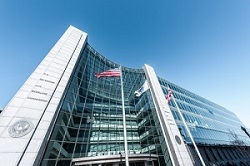Federal Court Confirms That Outsiders Can Be SEC Whistleblower Too

What does it mean to be a “whistleblower”? Often, people think of corporate or government employees with access to secret information that’s not visible from the outside. A classic example is Daniel Ellsberg. Working as a military analyst for the RAND Corporation, Ellsberg accessed and leaked an explosive Top Secret study of U.S. activities in the Vietnam War.
But the U.S. whistleblower award programs have long acknowledged another kind of whistleblower: outsiders. Like the traditional whistleblower “in the room,” outsiders too can expose illegal activity, often deploying sophisticated analysis or industry know-how to spot issues that others can’t. For example, Harry Markopolos famously uncovered Bernie Madoff’s massive Ponzi scheme from the outside looking in. And he did so years before Madoff’s empire publicly unraveled. Markopolos repeatedly sounded the alarm to the SEC, but the agency did not act until it was too late.
The Markopolos saga helped spur the modern SEC Whistleblower Program, which now rewards insiders and outsiders alike for reporting corporate fraud and other violations of the securities laws. For example, in November 2020, the SEC paid $1.1 million to a company outsider whose analysis helped the SEC uncover new misconduct by a target already under investigation. As the SEC explained, the whistleblower “examined and evaluated publicly available materials that provided important insight into possible securities violations that were not apparent from the face of the public materials themselves.”
Having once ignored outsiders, the SEC is now in court defending their right to blow the whistle. In a recent opinion, Judge Victor Marrero of the Southern District of New York denied a defendant’s attempt to place daylight between “outsider” whistleblowers and those “in the room.” At issue was the SEC’s rule prohibiting any person from taking “any action to impede an individual from communicating directly with the Commission staff about a possible securities law violation.” 17 C.F.R. § 240.21F-17(a). This rule has played a critical role in keeping employers from gagging their employees who seek to expose their own company’s wrongdoing. Indeed, the SEC has charged companies for violating this rule even when the company did not otherwise violate the securities laws.
As we’ve previously reported, the SEC has accused Collector’s Coffee and its CEO Mykalai Kontilai of violating this provision by coercing investors into signing agreements prohibiting them from reporting potential securities law violations to the SEC. Recently, Collector’s Coffee tried to dodge the charge by claiming the SEC’s prohibition on impeding whistleblowers could not apply to “outsiders” who were not employees of Collector’s Coffee. But the Court easily dismissed the company’s argument. Recognizing that “the statute allows eligibility for whistleblower status, and the various incentives and protections that come with that status, to extend beyond the employer-employee relationship,” the Court held that the SEC was well within its rights to apply this provision to non-employees.
The SEC’s decision to charge Collector’s Coffee, and Judge Marrero’s opinion affirming its right to do so, are welcome reminders that the SEC Whistleblower Program is open to insiders and outsiders alike.
READ MORE:
- The SEC Whistleblower Program
- SEC Enforcement Actions
- Financial & Investment Fraud
- Securities Fraud
- The Constantine Cannon Team
- Contact our Whistleblower Attorneys
Tagged in: Financial and Investment Fraud, SEC Whistleblower Reward Program, Securities Fraud,